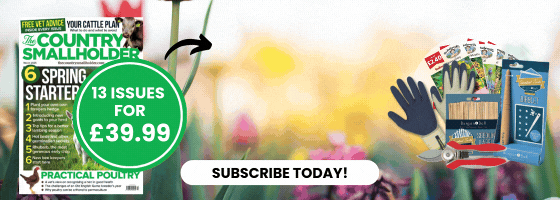TIM TYNE gives a smallholder’s view of the latest foot and mouth outbreak
It may be difficult for many smallholders to fully comprehend the impact of a disease outbreak such as this. Most, if not all, have some other principal occupation, and don’t face total ruin. They are understandably concerned for the health and welfare of their animals, and will see their neighbours struggling, but their daily life goes on. For those of us who depend almost entirely on the income from our livestock, the situation is rather different. Devastating. This is not just our livelihood, it’s our life! Don’t slip into the habit of believing that larger scale farmers somehow “feel” less for their animals. In fact the converse may be true, with famous flocks and herds having been passed down through several generations of the same family. Imagine how you would feel if your own 20 or so sheep were to be caught up in all this, then think of us with our 200, all known to us as individuals, and all descended, on one side or the other, from a ewe we were given as a wedding present. They’re safe enough for now, but who knows where the disease will pop up next?The closure of the export trade at the time of the August outbreak effectively wiped out all our chances of making a profit on lamb sales this year, as the price for small mountain lambs plummeted to £1.90/ kg (deadweight). I expect it will come down further, and we’ve still got lots to sell. We pinned all our hopes on the autumn ram sales – the rams we’ve got for sale this year are the best we’ve ever had (one is pictured on page 22 of this magazine) – but in the light of recent developments these sales will be cancelled too. We’ve got no use for them in our own flock, and can’t afford to keep them indefinitely, so they’ll have to go for slaughter. They might fetch £20 apiece. Depressing.There is one sector of the agricultural community that seems to be forgotten in all this – the children. I don’t mean the grown up children – they’re old enough to make their own choices, and many choose to leave the industry. I mean the really little children. By virtue of their age they spend more time on the farm in the company of mum and dad. They are also very sensitive. It is hardly surprising that their attitudes and actions are becoming twisted into a reflection of their parents’ bitter cynicism against an administration that no longer seems to understand, or care. Wherein lies their future?






